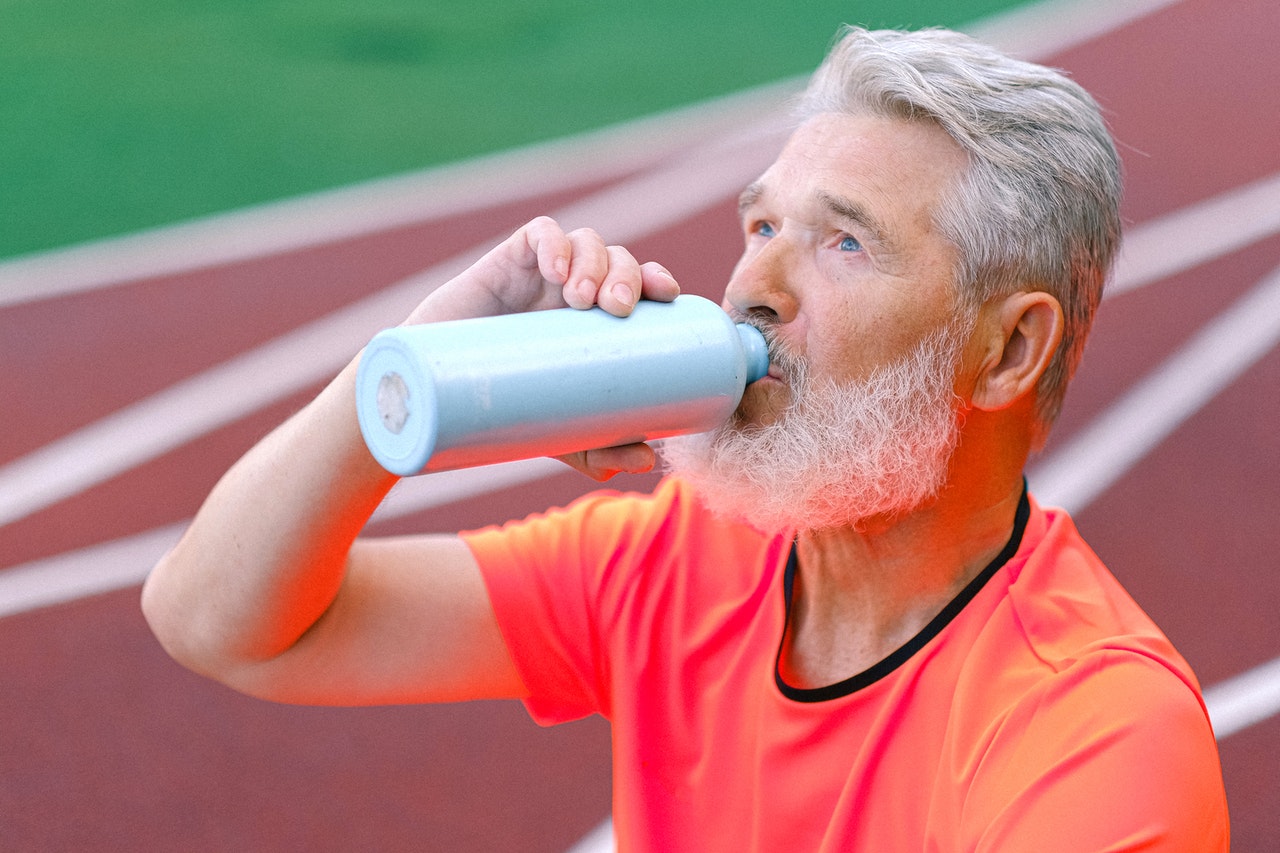
A Caregiver’s Guide to Dehydration
This article has been medically reviewed by Dr. Martin Duggan in 2021
This content is not intended to be a substitute for professional medical advice, diagnosis, or treatment. Always seek the advice of your physician or another qualified health provider with any questions you may have regarding a medical condition.
Staying hydrated is important for people of all ages, but seniors are especially vulnerable to dehydration and its effects. Seniors already have a lower volume of water in their bodies, which increases their risk of dehydration. Certain health conditions or medications may also cause dehydration in the elderly.
The cells that make up our bodies exist in a carefully regulated soup of fluid called the extracellular fluid. When we try to prevent dehydration, we are trying to keep the soup from getting too thick (aka too concentrated). When we add too much water, however, the soup becomes too watery. Sometimes if we lose both the ingredients and the water of the soup, we need more of both!
As we age, our body loses some of its ability to add water or remove water from our extracellular “soup”. Things our bodies used to be able to get away with when we were younger, like staying outside all day in 90-degree weather, are more difficult for our bodies to manage. Other things like drinking 3 liters of water in 10 minutes, can swing the pendulum too far the other way and be almost as dangerous!
The 3 keys to successful fluid management in elderly persons are moderation, consistency, and small changes rather than large corrections.
WARNING: this information on dehydration is intended for educational purposes and doesn’t replace professional medical expertise and attention. Especially in elderly patients, maintaining fluid balance is difficult. Often doctors will provide specific recommendations on water or salt intake. When planning for a long day in hot weather or activities where fluid management will be important make sure to ask your doctor for help planning ahead of time. When questions arise, it is important to CHECK WITH YOUR DOCTOR BEFORE YOU MAKE ANY CHANGES.
Why hydration is important for seniors
Hydration has a key role in senior health. For seniors, staying hydrated can improve certain body functions and prevent serious health complications. Specifically, hydration can:
- Improve digestion and prevent constipation: Seniors commonly suffer constipation, but staying hydrated may keep their digestive health in good order.
- Keep kidneys healthy: Seniors are also prone to bladder infections such as UTIs. Staying hydrated can help flush out unwanted bacteria and keep up kidney function.
- Lubricate joints: Hydration is also essential to keep senior joints moving. For those with arthritis or other conditions, drinking water can boost mobility.
- Reduce risk of falling: Dehydration can cause dizziness and weakness, leading to falls. Hydration can help seniors keep their balance.
- Prevent severe symptoms of dehydration: Severe dehydration can cause seizures, shock, and even death. It’s essential to avoid these dire consequences of dehydration.
These are just some of the reasons why hydration is essential for senior health.
Risk factors for dehydration in the elderly
Unfortunately, seniors are especially prone to dehydration. This happens for reasons related to aging, health, and housing. Here are the most prominent risk factors for seniors:
- Aging: The aging process naturally declines the amount of body fluid. Kidney function is also decreased over time.
- Reduced sense of thirst: Seniors don’t have the same thirst reaction as younger adults. They may not feel thirsty until they’re already dehydrated.
- Lowered mobility: Those with reduced mobility may not be able to get themselves water when they feel thirsty.
- Health conditions: Some seniors may also struggle with urination issues, especially as a result of conditions such as diabetes or kidney disease. Other health conditions may reduce senior ability to swallow.
- Medications: Many senior medications, including diuretics, increase urination and therefore water loss. Some cancer meds also increase sweat. Overall, multiple meds can cause water loss in general.
- Urinary incontinence: Seniors who experience incontinence may be reluctant to drink fluids because of fear or shame.
- Living in care facility: For those who live in a care facility, hydration often depends on busy staff members.
- Cognitive impairment: Seniors with Alzheimer’s or dementia may also forget to drink water, causing dehydration.
- Depression: Elderly depression is a common experience during aging. Depressed seniors may forget or be unwilling to drink water.
- Common flu symptoms: Sore throat, diarrhea, or vomiting may cause severe water loss and cause seniors to drink less water due to symptoms.
Common causes of dehydration in the elderly
Dehydration can be made worse by the risk factors mentioned above. However, dehydration often arises due to heat exposure or illness, which dramatically reduces fluids in the body. Even getting the common flu can cause seniors to spiral into dehydration.
Any of the risk factors above can lead to dehydration on their own. However, underlying health conditions and medications are especially to blame. It’s important for senior caregivers to create daily hydration goals according to their health conditions and meds, especially if a senior suffers from diabetes or kidney disease. Medication management can also reduce the complication of taking multiple meds. Ultimately, managing health conditions and meds will help reduce the risk of dehydration in the long run.
Symptoms of dehydration in the elderly
Senior dehydration may look different from other age groups. Common symptoms include:
- dry mouth
- fatigue or lethargy
- sunken eyes
- a decrease in urination
- urine that’s darker than normal
- inability to sweat
- headaches
- muscle weakness or cramping
- feeling dizzy or lightheaded
- shriveled skin
- low blood pressure
- rapid heart rate (over 100 beats per minute)
- confusion or delirium
These are common symptoms of dehydration and often seniors can recover from dehydration easily by cooling down and hydrating.
If you notice a senior is dehydrated, you should offer water or other fluids like juice or a sports drink – and make sure they’re not showing signs of severe dehydration. Most often, dehydration can be quickly resolved, especially if seniors and caregivers take care to hydrate on hot days and during illness.
However, severe dehydration is extremely serious and you may need to seek medical attention, depending on the senior’s symptoms.
When to seek medical attention
You should seek medical attention if you think a senior is experiencing severe dehydration. Some red flags for severe dehydration include:
- a rapid heart rate (over 100 beats per minute)
- trouble moving or walking
- confusion or delirium
- diarrhea or vomiting that lasts longer than 24 hours
- excessive sweating and pale, clammy skin
- cramps in the arms, legs and stomach
- temperature of 38C (100.4F) or above
- inability to keep down fluids
Without medical attention, severe dehydration can be life-threatening in seniors. It’s important to move quickly if you think a senior has severe dehydration. In this case, hospitalization will be necessary for the senior to receive fluids and electrolytes intravenously.
How severe dehydration threatens senior life
Severe dehydration can be life-threatening for seniors. If you see any red flags of severe dehydration, you should seek emergency medical attention. If untreated, severe dehydration can lead to:
- seizures (low levels of potassium and sodium)
- hypovolemic shock (drop in blood pressure and oxygen levels)
- heatstroke or heat injury
- urinary and kidney problems, including UTIs, kidney stones and kidney failure
- delirium
- pneumonia
While severe dehydration is rare, it’s important to understand the symptoms so that you can seek medical attention if needed. When in doubt, you should get medical attention for a senior experiencing dehydration.
How to prevent dehydration
While seniors can recover from dehydration, it’s best to avoid it altogether. To prevent dehydration in the elderly, here are some tips for seniors and their caregivers.
Daily senior living:
Creating a regular hydration schedule can help reduce the risks of dehydration. In addition, these daily senior living tips can encourage fluid intake:
- Drink water regularly throughout the day (including water, juice, soup or milk)
- Avoid alcohol, tea, coffee and protein drinks that increase water loss
- Take small sips if needed to finish the glass
- Add lemon, lime, orange or cucumber slice to add flavor to water
- Consume foods with high water content (watermelon, cucumber, celery, strawberries, etc.)
- Bring a water bottle outdoors or when exercising
- Drink more fluids and sports drinks when ill
- Address any incontinence that makes you reluctant to hydrate
- Hydrate more during hot and humid weather
- Check urine color (make sure it’s light)
- Listen to your body
Caregivers and staff:
Caregivers and staff also play a large role in ensuring that seniors stay hydrated. As a caregiver, you can prevent dehydration by ensuring that you:
- Offer seniors a drink at a regular interval (after waking up, during meals and after exercise)
- Offer preferred drinks
- Offer full glass with medications
- Provide special cups to aid hydration
- Keep water in accessible places
- Allow seniors to take time sipping
- Get easy access to bathroom (for any incontinence issues)
- Educate seniors on hydration importance
Some care facilities even specially train their staff on senior dehydration and how to prevent it throughout the day. If your senior has dementia or limited mobility, this training is a must-have at the care facility of your choice.
Conclusion
At the end of the day, hydration is vital for senior health. You should ensure that you stay hydrated throughout the day, especially during hot days or illness. If you’re a caregiver, you should also follow our tips to encourage daily hydration. Once you get used to hydration-friendly habits, you can reduce the risk of dehydration.
Hydration isn’t the only issue impacting seniors. You can get more information about other senior health topics at My Caring Plan.
Sources:
- Symptoms and Causes of Dehydration, Mayo Clinic, www.mayoclinic.org
- Dehydration in the elderly, Nutrition.org, www.nutrition.org.uk
Related Articles

Elder Law Attorneys: A Comprehensive Guide
If you are someone who is taking care of a senior or has an elderly loved one, you should consider working with an elder law attorney. Though you may not expect it, individuals begin to face new and more complex legal concerns as they get older. Actions that may have seemed trivial when they were […]

When Is It Time for Assisted Living?
Wondering if it is time for assisted living for your loved one is a common question for caregivers. As a caregiver, you might have been considering the question for months or possibly even years. Your loved one might have declined to continue the discussion as the thought of moving out of their family home and […]
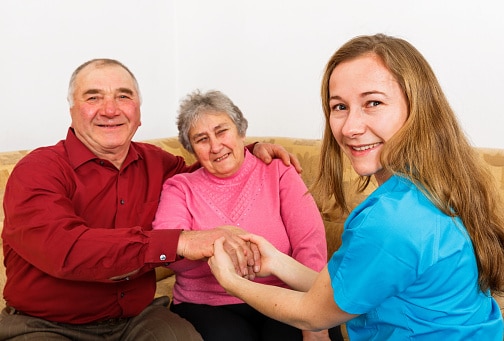
All About Adult Day Care: Community and Costs
Adult day care is a fairly new concept for caregivers. The basic idea is to provide a secure place where seniors can enjoy social activities during the day and be provided nursing care as needed. It’s a hybrid model of eldercare that prioritizes community. At the same time, seniors get help with common custodial tasks […]
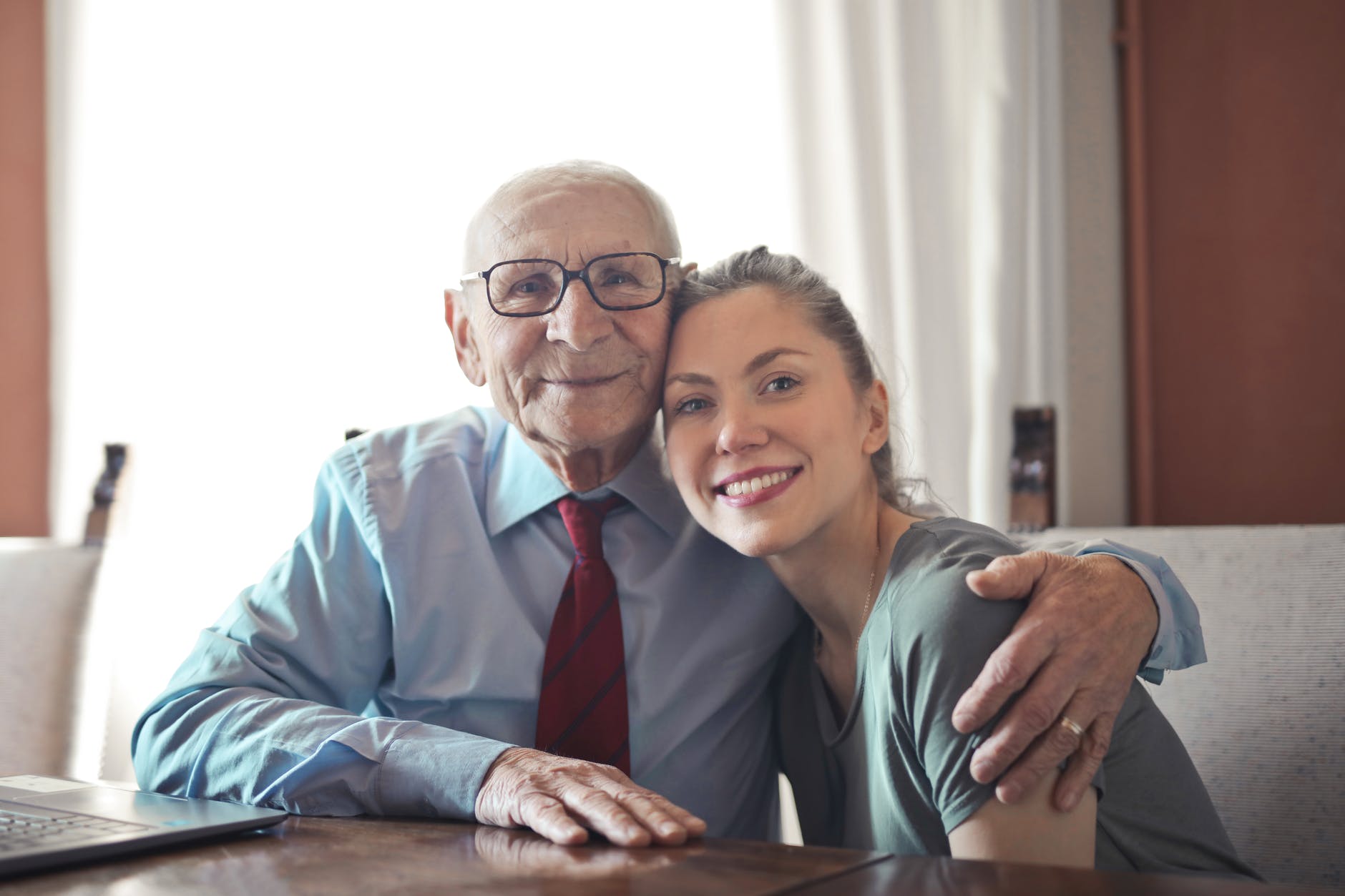
Respite Care: An Overview
Caregiving can be overwhelming at times. That’s why taking a break is essential for recharging your battery. Respite care, also called short break care, is a way for caregivers to get temporary care for their loved ones so they can take some time to rest. Getting this “me time” of respite care can renew the […]
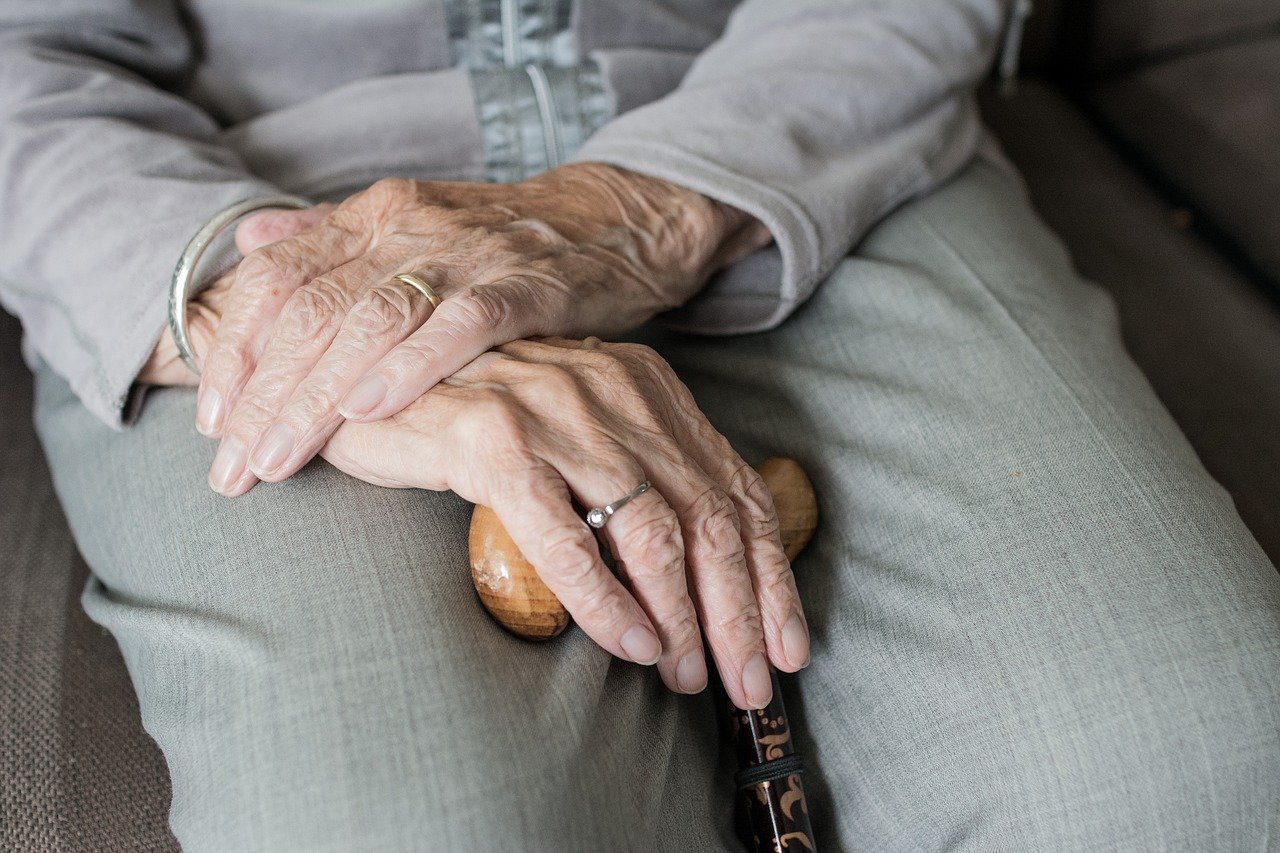
An Overview of Senior Rehabilitation Centers
Recovering from injury or illness in your golden years may take time and support. That’s where senior rehabilitation centers become essential. If you need a temporary stay to recover from injury or illness, senior rehabilitation centers can be the solution to get expert care and daily support. In this article, we’ll give you an overview […]
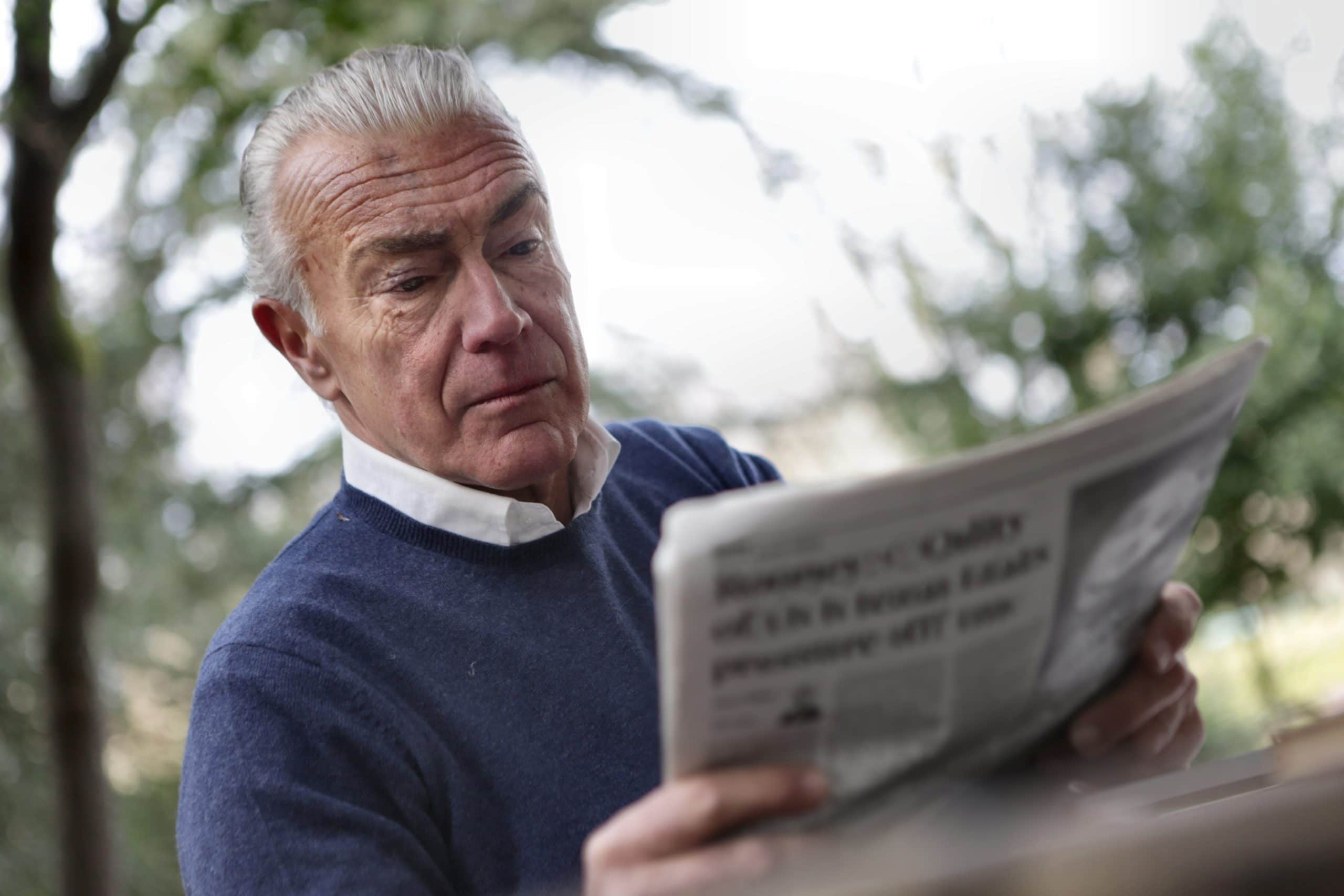
A Caregiver’s Guide to ADLs and IADLs
This article has been medically reviewed by Dr. Martin Duggan in 2021. This content is not intended to be a substitute for professional medical advice, diagnosis, or treatment. Always seek the advice of your physician or another qualified health provider with any questions you may have regarding a medical condition. As a family caregiver, your […]